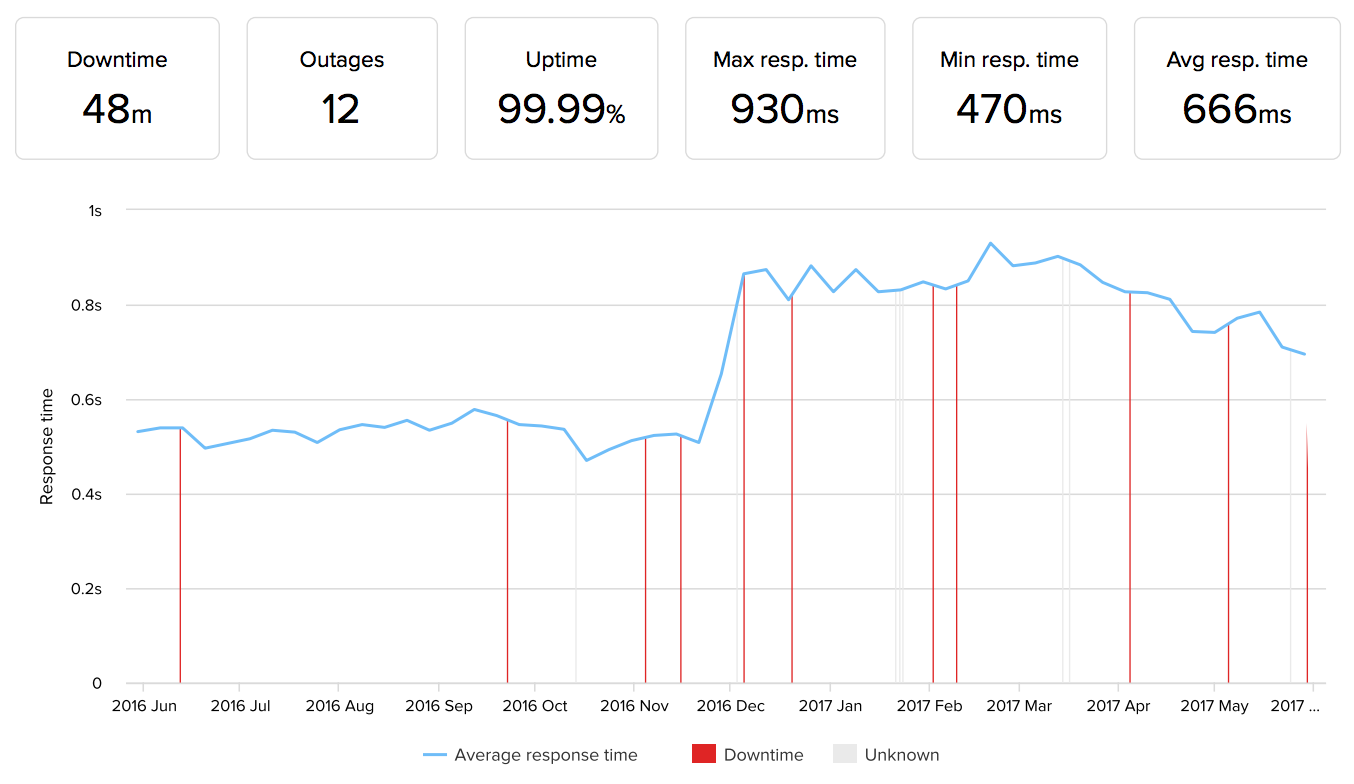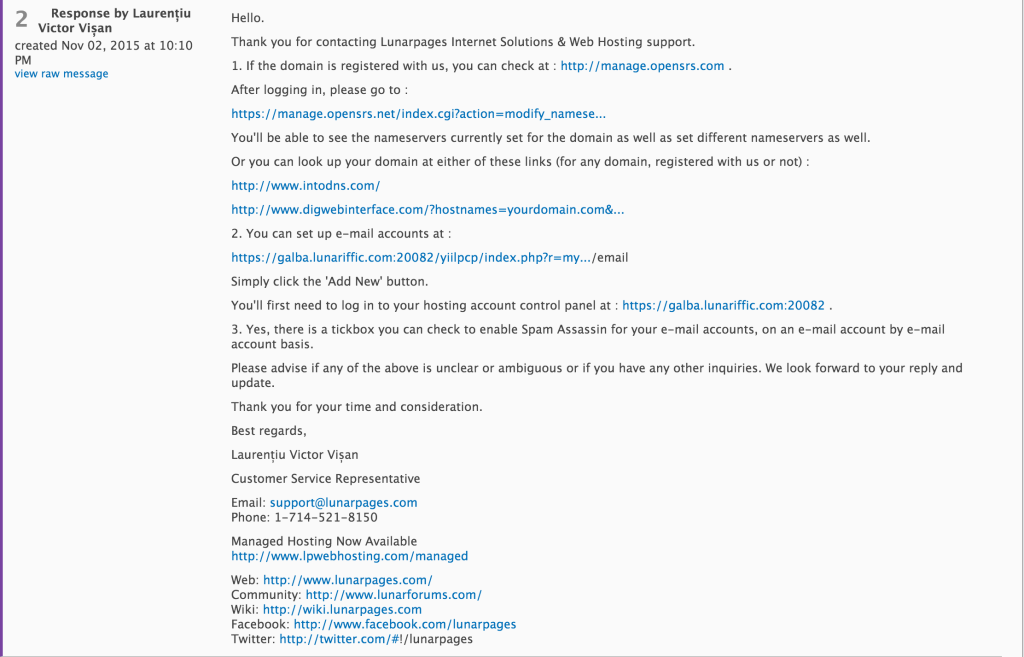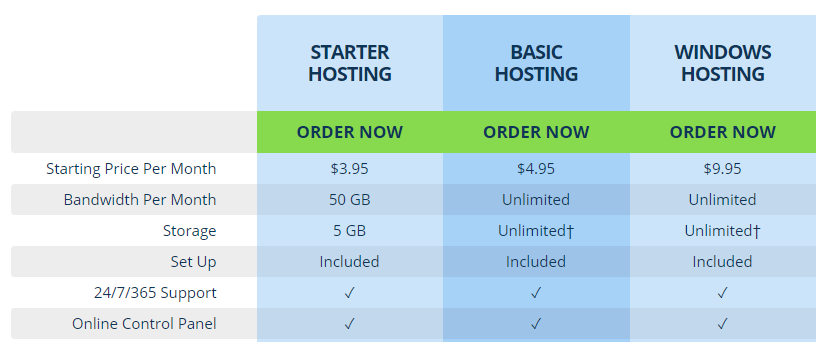
InMotion Hosting is one of the largest independent web hosting companies in the world. They’ve been around since 2001, and have tried to develop a brand around being the “nerd’s choice” that businesses also love.
InMotion Hosting has positioned themselves as the one of the few large, stable hosting companies that is not owned by Endurance International – a holding corporation for many well-known hosting brands (including a few that I use for sites like HostGator, Bluehost and iPage).
You can get 47% discount off InMotion’s plans here…
There are a lot of InMotion Hosting reviews online – usually with user-generated reviews based on anecdotes, complaints, and personal experience. That’s fine but I take a different approach with pros and cons to highlight whether a particular company is a good “fit” given resources, priorities, and experience.
Since 2013, I’ve done several side-projects on InMotion in addition to consulting for clients who run projects on a range of competitor hosting companies. In August 2015, I actually moved ShivarWeb.com to an InMotion VPS server, though several projects remain with other hosting companies such as HostGator and InMotion’s sister brand Web Hosting Hub – both of which have more “unlimited” plans and a support focus on beginner / small sites.
Here’s what I’ve found to be the pros and cons & full InMotion Hosting review based on my experience there and at other providers as a customer & consultant.
Disclosure – I receive referral fees from many companies mentioned in this post. All my opinions and data are from my own experience as a paying customer or consultant to a paying customer.
Pros of InMotion Hosting
No hosting company is perfect. And I’ve always maintained that there is no such thing as a “best” hosting company – it all depends on your goals and preferences.
Aside – In fact, I created a hosting quiz to help match goals/needs with the right hosting company.
That point understood – here are the 6 big advantages that I’ve found with InMotion.
Customer Service & Support
InMotion Hosting puts their customer service front and center in their marketing. They boast about US-based tech support via phone, chat, email, or ticket system.

Anyone who has ever run a website understands that customer service and support is something that’s easy to overlook and skimp on upfront…but you will always need support at some point, and when you need it…you really need it.
And the tricky thing about all customer service is that it’s hard to judge it as a whole because you never know when you just had a bad rep or when it’s indicative of a company’s culture (i.e., does the company view customer service as a cost or as an investment).
For example back in 2013, my very first chat with an InMotion rep was not encouraging…

I’ve also had readers write in with not so pleasant customer service experiences with InMotion Hosting – though the underlying issue ended up being more outside of technical help’s scope than they let on (e.g., bulk hosting adult images for a forum in one case).
How do you judge overall culture without singling out anecdotes?
All my customer service experiences since then with my side-project and with setting up my VPS server have been outstanding – enough to make it the main reason that I switched to InMotion for my VPS server (which has more technical problems than running a shared server, which is what most companies need).
Either way – the whole point is that all these anecdotes are just that – anecdotes. With my other hosting reviews, I’ve tried to look for external indicators for what their internalservice culture was really like.
The two best indicators that I’ve found are an investment in tools & content (ie, are they simple, usable & thorough) and support channel access (ie, are there multiple ways to get your problem solved depending on situation & expertise.
InMotion Hosting performs very well on both those indicators plus a couple extra strengths.
First, InMotion has a ton of resources in their knowledgebase and in their comments. A knowledgebase isn’t uncommon among hosting companies, but what I’ve found useful is how a knowledgebase article kicks off a conversation so that users post their related problems to that thread, and InMotion reps respond within the thread. It makes self-directed troubleshooting a lot easier.

InMotion Hosting has a ton of unique, in-depth guides within their customer support base. In fact, they rank in Google for a huge range of support queries from general Internet users. Their top-performing organic pages are almost all high ranking support pages –
 It’s obvious that they put a lot of money behind creating help content.
It’s obvious that they put a lot of money behind creating help content.
Second, they have a wide range of support channels that are all highly responsive. They have phone, chat and even Skype front and center everywhere on their site.

For some companies, you basically have to call because email isn’t quick. Or chat will be down so you have to email, etc. InMotion’s support channels (again, that I personally have experienced) all function well and serve the right purpose. I’ve sent in email support tickets that have been solved very fast; and had phone calls returned quickly.

Additionally, the reps that I’ve talked to seem to actually know what they are talking about, and aren’t just following a trouble-shooting script. That’s allowed me to skip the “yes, I’ve already tried all the basic troubleshooting steps” to discussing the root cause problem. I’ve had readers write in to let me know that InMotion was the only hosting company to get to the actual root problem of their issue (in this particular case, a conflict with their WordPress theme & their running version of PHP).
Over the Christmas break, I had to upgrade a couple accounts to PHP7 – the fastest / current version. Even though the front-line rep couldn’t do the actual installation, he could tell me that the change would require a prerequisite upgrade to my Apache version – which would require a server reboot.
So to make sure the process happened smoothly, he sent my ticket up the chain to a server admin – who smartly scheduled the upgrade for 3am. Very adept handling of a potentially tricky situation.
Lastly, InMotion has great “onboarding” – which is jargon for the process that new users go through to get up and running. Their email sequence is useful; they customize support articles based on how to plan on using your account (ie, WordPress users get WordPress related emails). The onboarding process proactively solves a lot of would-be support problems.

Hosting Performance
Customer support, though, is not the point of having a web host.
A web hosting company’s job is to securely store your website files on a server, and serve up those files as quickly as possible to every single one of your visitors whenever they ask for them.
There’s a lot of ways to measure hosting performance – you really get deep into the weeds with server specs, and jargon that honestly isn’t particularly useful to a small business or someone looking to just put up a website. There are also a ton of variables that go into website speed.
One of the best quick metrics to look at for (cheaper-end) hosting is Time to First Byte – or TTFB – or how long does it take the server to respond after it receives a request from a visitor. I look at this because everything else afterwards is highly influenced by how your particular website is configured.
I’ve been running a version of this test for years on all the hosts that I review. InMotion almost always trends very much above average for hosts, which is what you want. If you have a host that has consistently above average TTFB speeds, you can work with all the other website speed factors.
Here’s my most recent TTFB tests with InMotion on an “out of the box” WordPress install on a shared hosting plan with no caching or any configurations.

For perspective here’s HostGator’s test with the same “out of the box” no configurations.

And here’s the test for their VPS service with a fully setup WordPress site configured with basic caching –

Again, for shared hosting accounts this number will bounce around some. TTFB is best viewed as a trend – and is only a starting point when it comes to speed. But InMotion is definitely on the faster end of all shared hosts I’ve worked with. Some of this performance is due to the fact that they use SSD drives for all their servers, instead of the spinning-tape hard drives, which is a bonus for shared/business hosting companies.
According to their sales material, they also don’t overbook their shared servers with websites like many shared hosting companies do. In other words, some hosting companies will fill servers with websites at more than 100% capacity, and just hope that none of them have a traffic spike at the same time. InMotion says that they don’t do that, so even shared servers with some caching will be able to handle traffic spikes if necessary.
As far as reliability goes, they’ve always had a reputation for hitting their 99.9% uptime guarantee. They maintain a status page at status.inmotionhosting.com that reports on their real time network and server status.
That said – InMotion Hosting was down and had significant network problems in the first week of May 2017. While this site was never down, one of my smaller sites had a few hours of downtime. Other customers had even more downtime. Their Network Operations team traced it to problems with routing traffic through a device in their West Coast Data Center.
The problem with big downtime events is that, like customer service, you never really know if you are dealing with a true one-off situation that the company will learn from or if it has a root cause in underinvestment and poor planning procedures.
It’s important to note that in just the month after InMotion went down – Amazon’s product pages went down along with all of YouTube – so, yeah, all websites go down. And with every host, the issue is not when they will go down, but how will they respond.
Compared to my experiences with GoDaddy’s outages and HostGator’s outages years ago – InMotion was alright. Their support was flooded, and the exact cause took a while to find out, so there are plenty of justifiably angry customers.
Given the fact that their customer service in general is a huge advantage, and I’ve had a fine experience with them – I don’t consider the most recent downtime a reason to move this site. It is a reminder, though, that whatever host you use – you have to prioritize redundancies and backups.
Control Panel & Usability
For hosting companies, there’s a fine line to walk with creating a backend that isn’t daunting to first time users while still offering a flexible setup for once your customers have gotten their bearings and want to tweak things a bit.
To me, the best solution is to use cPanel as a backend and Softaculous with one-click install. It’s common; it’s open-source (so there are tutorials everywhere), and it’s pretty basic – but in a good way.
Here’s what the traditional cPanel backend looks like…

Again, very basic – but once you get used to it, cPanel (along with all the languages and apps they have) offers all the flexibility you’ll need.
The one thing that InMotion does differently though – and this is a recent change – is that they put cPanel access directly on your account management dashboard. This means that you don’t have a separate login for billing/domains and your cPanel. They also place the one-click installer within your account dashboard.
You have a single login on InMotionHosting.com where you can just click over for cPanel.

They also run the most recent version of cPanel which is not only cleaner and more accessible, but also has free integrated Comodo SSLs (ie, a brand name SSL).

And another issue that comes with the single Account Management Panel is that they have a lot of in-house upgrade options. If your site ever gets big enough that you need a developer oriented solution like Managed Hosting, Virtual Private Server, or even a Dedicated Server – InMotion Hosting has all those options in-house, so you can upgrade fairly seamlessly.
Guarantees & Freebies
InMotion Hosting has a 90 day money-back guarantee. Industry standard is 30 or maybe 45 day money back guarantee. The guarantee is especially reassuring if you are pre-paying for an entire year to get better pricing.
or As of July 2017, InMotion has rolled out free Comodo SSL certificates. They are fully integrated into their cPanel setup and make going HTTPS much more accessible.
And either way, you get plenty of freebies with your account (e.g., Google Ads, Free Site Transfer, Google Apps Integration, BoldGrid Website Builder, etc)
Free Data Backups
Frequent data backups are a huge deal for shared hosting providers. Servers go down (see section above), you accidentally hit the delete button (speaking from experience there), or random stuff just inevitably happens – and you need a backup.
InMotion does backups, like most all hosting companies.
Where they do better though, is that those backups are freeif you ever need it. For example, in comparison, HostGator does automated backups for free every week, but charges $19 to retrieve the backup. Some competitors charge a separate fee for backups entirely.
Many hosting companies also put low limits on data backups. If you have an image-heavy website, you may quickly find yourself with no emergency backup. InMotion has generous backup limits to give your data and extra safety net.
Aside – you should be doing your own backups, and should never solely rely on your hosting company for backups. But certainly look for them to have an emergency backup.
Independence & Community Support
I don’t think a companies’ size or form predetermines what quality product / service that company produces. Often times, a large company has resources that a small company cannot do. On the flip side, even with the right processes a large company can create unneeded distance from its actual customers.
The open secret in the hosting industry is that the Endurance, GoDaddy, and Network Solutions corporations own nearly every brand that you’ll come across. InMotion Hosting is one of the few independent companies in the hosting industry.
Additionally, InMotion is one of the few independent companies with significant size (the other one being SiteGround). With this position, InMotion takes advantage of having the resources to compete on competitive features (like custom built drag and drop builders) while still aligning their company according to their mission and values rather than Wall Street’s demands for growth.
I know that InMotion certainly tries to make a profit above all else – but I think that what a company does with their sponsorship money can say a lot about their internal culture. For example, I’ve mentioned separately about how GoDaddy’s advertising is problematic. But it’s also true on the flip-side – a company that supports excellent industry and community initiatives can indicate a positive internal culture.
InMotion is a large sponsor of WordCamps and open-source software core development. They sponsor Joomla camps. They also do environmental initiatives. All of these are indicative of both smart marketing and meaningful company culture.
Either way, many customers are shopping for a non-big big brand owned hosting company. InMotion is independent while still being big enough to provide competitive features.
Cons of InMotion Hosting
No hosting company is perfect or “the best” – you’ll find plenty of InMotion Hosting complaints (and raves) around the web. Some are justified (ie, see the section on downtime above) and some are not justified (ie, they are hiccups that you’ll find at every host). Here are some big-picture cons / disadvantages that I’ve found with InMotion Hosting.
Price Point
If you find a hosting company that fits your goals, I’m not a huge fan of counting pennies – but paying the right price for the features you get is still important, especially if you are just starting out and on a budget.
InMotion Hosting has several very affordable plans, but they have limitations which I’ll cover in the “Limitations” section. For unlimited plans comparable to other shared hosting providers, their price point is a bit higher than other shared hosting providers.
They are still a good deal overall, and are very affordable. However, they are more expensive based on an equal comparison of account features than competitors to call their pricing out as a con. In fact, they have a separate brand called Web Hosting Hub that focuses on “unlimited plans” at a slightly cheaper rate.
Side note – to get 47% off discount, click through to this InMotion plans page to bring the price point down a bit.
InMotion Hosting Pricing Structure
The other note/con about pricing is that you have to sign up for a full year – and the discount is only available for up to a 2 year lockin. Again, they do a money-back guarantee, but if you’re not sure about how long your project will be in place, InMotion can be a bit pricey for websites just starting out.

Additionally, beyond the 90-day money-back guarantee, there is no pro-rated refund. Pre-paying for a full year is not a bad thing or out of the norm. But if you are unsure about your project length, monthly plans such as those offered by HostGator can be worthwhile.
Database / Website Limitations
Before I dive into what exactly this con is about – I’ll define a couple terms.
As a general rule, a database is what stores the information that powers your website (so 1 install of WordPress runs off 1 database as a general rule). So, the number of databases allowed represents the number of distinct websites you can run on your server.
The number of websites/domains generally refers to the number of domains that can be routed to your server. Websites/domains is different than databases since you can have a lot of different websites on 1 domain. For example, a web designer might have client1.domain.com, client2.domain.com, and domain.com – this would be 1 domain, but would run off 3 different databases.
So, long point short – InMotion really limits the number of websites and databases that you can run on your account – even at their top price point.
I understand why they do this. It’s a way to provides better network performance and provide smarter investment in shared servers. It filters the people who want to think “unlimited” means “unlimited even beyond what the shared server can handle” rather than “no caps on your account on your shared server.”
If you know exactly what you are using your account for (such as 2 websites, and nothing else) – and don’t plan on expanding beyond that – then this con is a bit moot.
It is a limitation that you should be aware of when comparing providers and pricing – and when thinking about what your plans are for your account (if you are concerned with this – you should also check out my InMotion vs. HostGator post).
The trouble mainly comes with hard caps on a number of items rather than on resource usage. For example, my 6 sandbox/dev sites could technically use nearly zero resources rather than someone’s 1 image and script heavy site. On InMotion, I wouldn’t be able to have those 6 dev sites without a Pro plan. Meanwhile, the person with 1 site and heavy resource usage would still get frustrated when he got dinged for using too many resources even though he’s still under the cap.
Either way, this con is a consideration for how you plan on using your server and what your needs/priorities are.
Aside – it’s also another reason they run Web Hosting Hub as a separate brand. They do offer “unlimited / unmetered” plans via Web Hosting Hub.
Broad Product Focus
This disadvantage is a bit ironic since InMotion Hosting does not provide Windows Hosting and their broad compatibility for a range of websites is a huge advantage.
The point here is that InMotion Hosting strives to be a solid overall hosting company for all sorts of business use cases. They maintain expertise & server compatibility across a wide range of code languages and server specs. They do WordPress hosting well, but they aren’t a strict “WordPress-focused” host. Same with Joomla. Same with Drupal. Same with Ruby and every other website option.
They even recently rolled out a new unmanaged VPS product for sysadmins and developers.
That is a good thing, but it also means that InMotion is usually an early adopter rather than a first adopter for new hosting features. For example, it took them a few months to enable PHP7 “out of the box” since it was still so new that it was not compatible with many platforms. But WordPress software encourages PHP7 over PHP5.6 – so if you had purchase with InMotion Hosting, you’ll have to check that box rather than trust that it’s enabled by default as it might be with WordPress-focused competitors.
InMotion Hosting is only now coming out with a unique WordPress Hosting plan.*
*Aside – in fairness to InMotion and competitors who also don’t have a “WordPress Hosting” plan – it’s a *very* confusing term that often guides customers into paying more for the same web hosting they would have otherwise bought. Web hosting with a “WordPress trained support” is not worth paying more for. WordPress runs fine on shared, Linux hosting. There are good reasons to choose a custom WordPress hosting plan, but it should be different and truly customized to make it worth the extra money.
The short version here is that InMotion makes an inherent tradeoff to be a solid web hosting company since that means it cannot be a boutique / specialist hosting company. While InMotion has specialist products, it’s something to be aware of if your project has specific requirements (ie, WordPress, Joomla, Drupal, etc).
Conclusion
That’s the extent of my InMotion Hosting review. They are a solid, well-respected web hosting company. I’ve switched to them for this specific website and love it.
I think they are the best fit for someone who is only looking to host a couple websites on their account, and is willing to pay a bit of a premium for great support and performance. You can check out InMotion Hosting here.









